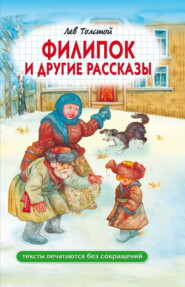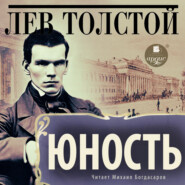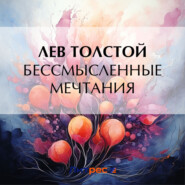По всем вопросам обращайтесь на: info@litportal.ru
(©) 2003-2025.
✖
War and Peace: Original Version
Автор
Год написания книги
2019
Настройки чтения
Размер шрифта
Высота строк
Поля
Oh woe! Lest first my life should end.
He sang only for Sonya, but everyone felt a happy, warm feeling in their hearts when he finished and stood up from the keyboard with his eyes moist.
“Charming! Enchanting!” said voices on every side.
“This romance,” said Julie with a sigh as she went up to him, “is bliss. I understand everything now.”
During the singing Marya Dmitrievna had got up from the table and stood in the doorway to listen.
“Bravo, Nikolai,” she said. “You move the heart. Come here, give me a kiss.”
XXVII
Natasha whispered to Nikolai that Vera had just upset Sonya by stealing the poems and saying all sorts of nasty things to her. Nikolai blushed and immediately strode determinedly across to Vera and began whispering to her that if she dared to do anything unpleasant to Sonya, then he would be her enemy for life. Vera tried to make excuses and apologised and observed, also in a whisper, that it was not proper to talk about it now, indicating the guests who, noticing some sort of unpleasantness between brother and sister, had moved away.
“I don’t care, I’ll say it in front of everyone,” Nikolai said almost loudly, “that you have a wicked heart and you take pleasure in hurting people.”
Having said his piece and still trembling in agitation, Nikolai walked over to the far corner of the room, to Boris and Pierre. He sat down beside them with the resolute and gloomy air of a man who is now capable of anything and whom it is best not to bother with questions. Pierre, however, as distracted as ever, failed to notice Nikolai’s state of mind and, feeling in a state of great contentment, intensified still further by the pleasurable sensations of the music, which always affected him deeply despite his being incapable of singing a single note in tune, he said to Nikolai:
“How splendidly you sang!”
Nikolai did not answer.
“What rank will you have in your regiment?” Pierre asked, simply in order to ask him something else.
Nikolai, forgetting that Pierre was in no way to blame for the unpleasantness Vera had caused him or for Julie’s irritating attentions, glared at him angrily.
“They suggested I petition for an appointment as a gentleman of the bedchamber, but I refused, because I wish my position in the army to be due to nothing but my own merits … and not to perching on the heads of people more worthy than myself. I am joining as a cadet,” he added, very pleased that he had so soon been able to demonstrate his nobility to his new acquaintance and to use the military expression, “perch on someone’s head”, that he had only just overheard from the colonel.
“Yes, I am always arguing with him,” said Boris. “I don’t see anything unfair in joining straightaway as a major. If you don’t merit that rank, they will reject you, and if you do merit it, you can be useful all the sooner.”
“Yes, well, you are a diplomat,” said Nikolai. “I believe it’s an abuse of one’s position and I do not wish to start with abuse.”
“You are absolutely right, absolutely,” said Pierre. “What’s that, the musicians? Will there be dancing?” he asked timidly, hearing the sounds of instruments tuning up. “I have never been able to learn a single dance properly.”
“Yes, I think mama ordered it,” replied Nikolai, glancing cheerfully round the room and mentally seeking his own lady among the others. But just then he spotted a group that had gathered around Berg and the good mood that he had recovered was once again replaced by morose bitterness.
“Ah, do read it, Mr. Berg, you read so well, I’m sure it must be very poetic,” Julie was saying to Berg, who was holding a piece of paper. Nikolai saw that it was one of his own poems which Vera, out of sheer spite, had shown to the whole company. The poem was as follows:
The Hussar’s Farewell
Oh, do not grieve me as we part,
Do not torment your dear hussar,
But be his sword-arm’s joyful heart,
Bright inspiration for his war.
I need my courage for the battle,
So stay these tears, so bitter-sweet,
I long to earn a victor’s laurels,
So I may cast them at thy feet.
When he had written the poem and given it to the object of his passion, Nikolai had thought it was beautiful, but now he suddenly felt it was exceptionally bad and, even worse, laughable. Seeing Berg with his poem in his hand, Nikolai halted and then, with his nostrils flared, his face scarlet, his lips pursed, he strode rapidly and resolutely towards the group, waving his arms. Boris, spotting his intentions in time, blocked his way and grabbed him by the arm.
“Listen, that would be stupid.”
“Let go, I’ll teach him a lesson,” said Nikolai, forcing his way forwards.
“He’s not to blame, let me go over there.”
Boris went up to Berg.
“That poem was not written for the whole world,” he said, holding out his hand. “If you please!”
“Ah, so it is not for everybody! Vera Pavlovna gave it to me.”
“It’s so lovely, there is something very melodic about it,” said Julie Akhrosimova.
“‘The Hussar’s Farewell’,” said Berg, and had the misfortune to smile. By now Nikolai was standing in front of him, holding his face close and glaring at the unfortunate Berg with wild eyes that seemed to pierce right through him.
“You find something funny? What do you find funny?”
“No, I didn’t know it was you who …”
“What’s it to you whether it was me or not? Reading other people’s letters is a base act.”
“I beg your pardon,” said Berg, blushing in alarm.
“Nikolai,” said Boris. “Monsieur Berg was not reading other people’s letters … You’re about to do something stupid. Listen,” he said, putting the poem in his pocket, “come over here, I want to have a word with you.”
Berg immediately moved away to join the ladies and Boris and Nikolai went out to the sitting room. Sonya ran out after them.
Half an hour later all the young people were dancing the écossaise and Nikolai, having talked with Sonya in the sitting room, was once again the same merry and agile dancer as always, and now felt astonished at his own irascibility and annoyed at his indecent outburst.
Everybody was feeling very jolly, even Pierre, who confused the figures as he danced the écossaise under Boris’s supervision, and Natasha, who for some reason split her sides with laughter every time she glanced at him, which pleased him greatly.
“How funny he is, and how splendid,” she said first to Boris, and then to Pierre himself, straight to his face, looking naïvely up into his eyes.
In the middle of the third écossaise, chairs began moving in the sitting room, where the count and Marya Dmitrievna were playing cards, and most of the honoured guests and the old folks, stretching themselves after sitting so long and putting their wallets and purses back into their pockets, came out through the doors into the hall. At the front came Marya Dmitrievna and the count, both with cheerful faces. The count offered his curved arm to Marya Dmitrievna in a gesture of facetious politeness, almost balletically. He drew himself erect and his face was illuminated by an extraordinary smile of rakish cunning, and as soon as they had finished dancing the final figure of the écossaise, he clapped his hands to the musicians and shouted up into the gallery, to the first violin.
“Semyon! Do you know the Daniel Cooper?”
This was the count’s favourite dance, danced by him in his youth (strictly speaking, the Daniel Cooper was one figure of the anglaise).

















